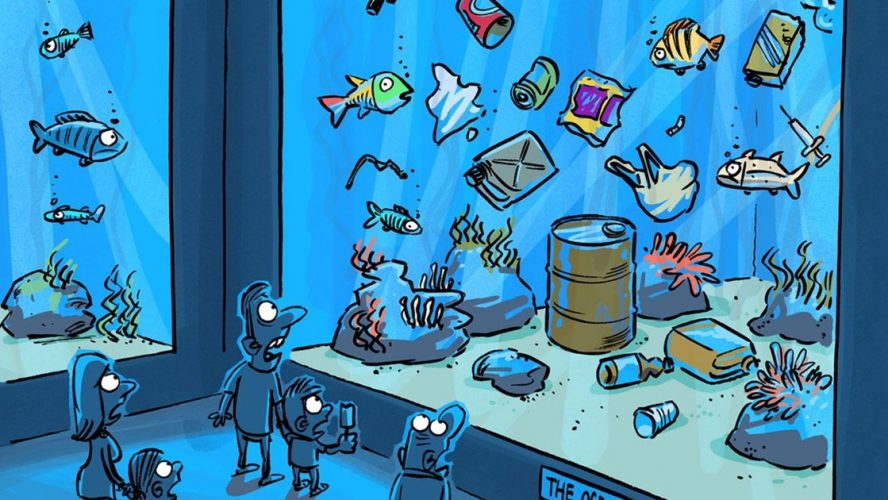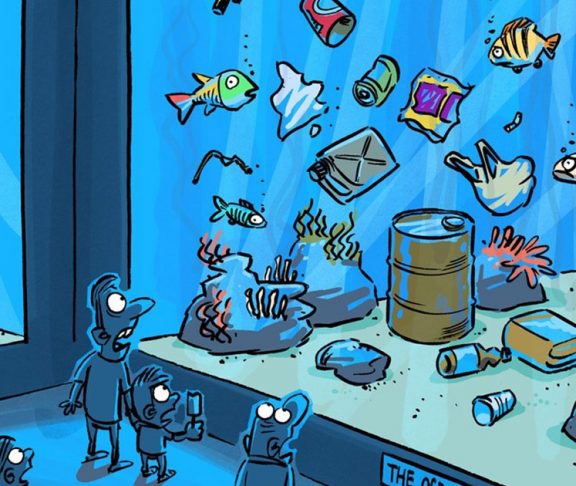Given that more than 8 million tons of plastic are dumped in the world’s oceans every year, the World Association of Zoos and Aquariums (WAZA) and its members are committed to fighting the rising tide of plastic pollution and protecting the world’s oceans and marine life.
Global impact
WAZA comprises nearly 400 influential zoos, aquariums, and associations worldwide, and WAZA’s scope has grown to both address the ecological crises of today and fully maximize the conservation impact of its members. WAZA members are increasingly becoming leaders in addressing global issues such as climate change, plastic pollution, and ocean health. Since more than 700 million people visit zoos and aquariums every year, WAZA members are in a prime position to drive behavior change and raise awareness of topical issues. From educating about the importance of species conservation to reducing reliance on single-use plastics, zoos and aquariums are not only focused on saving species, but also encouraging people to take action to safeguard the planet.
Commitment to change
WAZA’s commitment to modeling a sound change in behavior resulted in WAZA signing a Memorandum of Understanding with the United Nations Environment Programme (UNEP) in 2017, committing 50 percent of the WAZA membership base to eliminate single-use plastic from its institutions by 2023.
WAZA members have gladly risen to the challenge, and many have begun to remove single-use plastics from their supply chains and grounds. They are also communicating the harmful effects of plastic and educating their visitors about sustainable alternatives. Zoos and aquariums are creative in communicating the threats of plastic pollution; whether through advertising campaigns, educational talks, exhibitions on plastic, or art installations, they are getting the message across to their visitors and the general public.
Campaigns against pollution
In 2017, WAZA partnered with the European Commission and UNEP to launch the “World Aquariums Against Marine Litter” campaign, an EU contribution to UNEP’s #CleanSeas campaign aimed at engaging governments, civil society, the private sector, and the general public in the fight against marine plastic litter.
In 2018, a second campaign was started with the launch of the global coalition of aquariums against plastic pollution. The campaign “World Aquariums #ReadyToChange to #BeatPlasticPollution” involves aquariums across the globe organizing educational activities in their facilities, and encourages them to change their procurement policies to eliminate all single-use plastic items.
Sustainable fishing
Zoos and aquariums’ work to protect the ocean extends beyond battling plastic pollution to encouraging sustainable seafood choices among consumers. Monterey Bay Aquarium in California launched its Monterey Bay Aquarium Seafood Watch program to help consumers and businesses choose seafood fished or farmed in ways that support a healthy ocean. Since 1999, the program has worked to raise public awareness about sustainable seafood choices. Today, Seafood Watch has more than 11,000 partner locations worldwide and more than 200 zoo, aquarium, and nonprofit partners promoting sustainable seafood.
Working together, the world’s leading zoos and aquariums hope to beat plastic pollution and encourage sustainable behavior change among their visitors for the health of the planet’s oceans.

